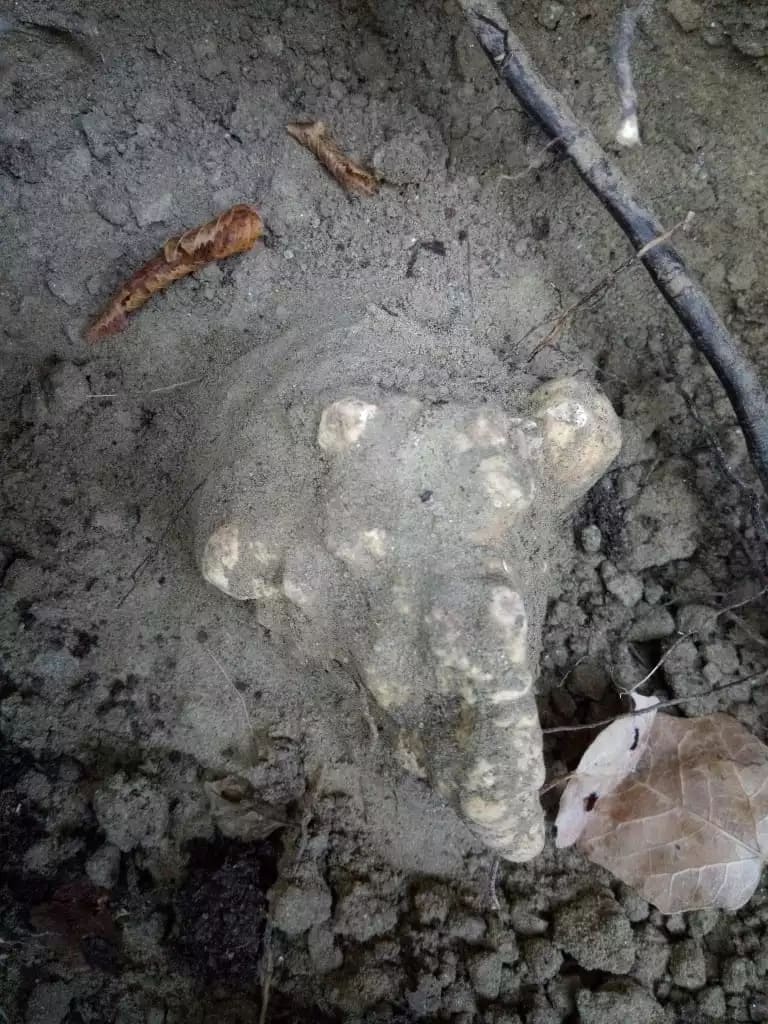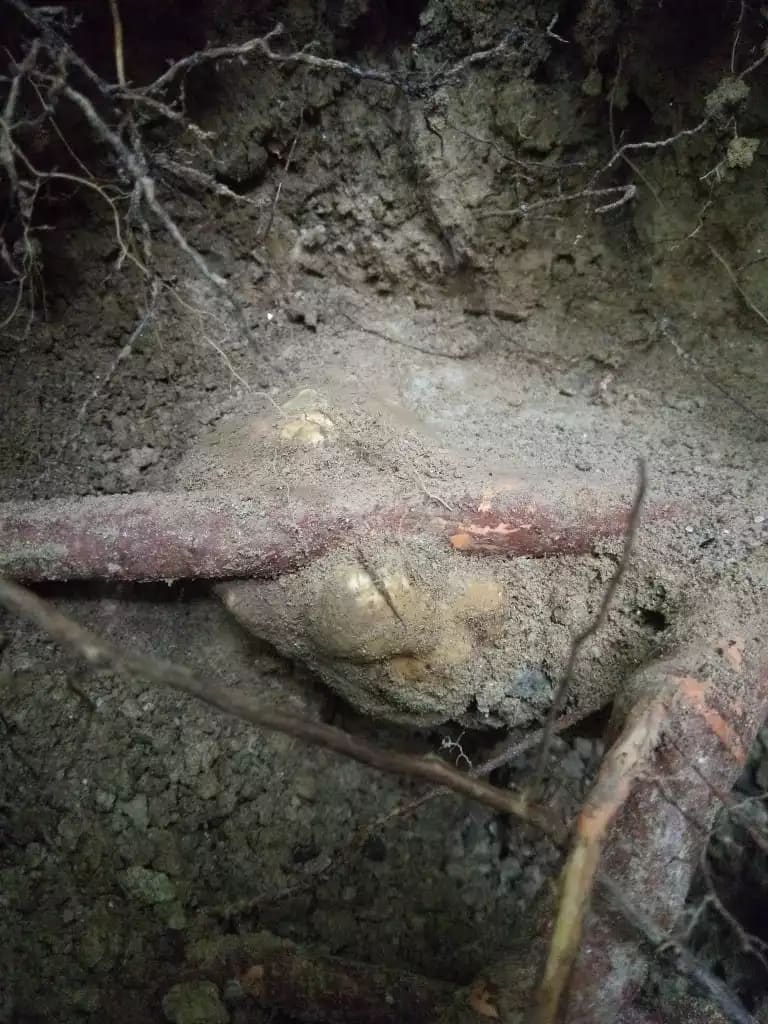When beginners start out truffling they will often approach experienced hunters for information on their new hobby. Most hunters will be glad to talk about topics like dog training and the best digging tools or the sturdiest boots. However when novices begin to ask where they can find truffles, they rarely receive the details they were hoping for. They may even get a frosty response and this can cause offence. Maybe there is something mean about withholding knowledge in this way – it definitely defies the communal spirit of sharing information freely. Back in the real world though, why would you expect someone to hand over information of this nature?
The question is akin to asking for the secret recipe for the pies someone sells in their family bakery. The person asking the question is overstepping the mark, not the person refusing to give a straight answer. If you think about it, what gives you the right to ask someone to turn over the details to shen beginners start out truffling they will often approach experienced hunters for information on their new hobby. Most hunters will be glad to talk about topics like dog training and the best digging tools or the sturdiest boots. However when novices begin to ask where they can find truffles, they rarely receive the details they wer nature?omething they worked hard for years to achieve? You are asking to share in their livelihood with no input and no effort on your part.
Still the reasons for truffle reticence run deeper – it is not only about the money. Codes guard all professions and most experienced hunters take their trade seriously. Just as a magician is never supposed to give away the secret to a trick, a serious hunter will never reveal the secrets to where truffles grow. Performers who tell the audience how to saw the lady in half will be hounded out of the magic circle and scorned. The same code of silence exists in the truffling brotherhood. Hunters want to be respected by their peers – one way to achieve this is to master the work, another is to abide by the professional codes. So if you want to learn where truffles grow you won’t find out from hunters. They guard their hard-earned truffle patches far too jealously.
You might want to turn to books for advice about where to start out. Find out as much as you can from the many great books on the market. They may make for fascinating reading but these books won’t turn you into a truffle hunter. Ultimately, with truffling as with most professions, you learn by doing not by reading about doing.
Relying on books is also problematic in that they are cagey and sketchy about the details especially regarding precise locations. The description of truffle ecosystems found in books are usually the standard, written in general terms or refering to entire regions that would take months to explore. Truffle books tend to be written by scientists. Hunters generally avoid writing books to avoid loss of face. Scientists will carefully explain the growth factors required for truffles to develop, hunters know that this means zilch. You can have all the growth factors in the world, it doesn’t mean you are going to find a truffle. Truffles are elusive and fickle and this is a huge part of their attraction. But stick with books, they will help you recognize the kind of areas you need to look out for.With time and experience, you will learn to narrow these down.

Then one day when you are least expecting it, you will experience a sudden feeling of triumph as you stumble upon a likely clump of trees. A feeling which is heightened when the dog starts to paw at the ground. It stops digging and you kneel down in the dirt and start to search yourself. You are looking for a white tip peeping through the earth. Then you see it, the first sign of the truffle. Your heart leaps. You gently remove the soil trying to gauge where the truffle starts and ends. How far down does it reach? You trace around the truffle firmly with your finger while your heart is firmly in your mouth.
No matter how many years you have been doing this, your heart will always be racing as you unearth a white truffle. But you must stay calm, you need to extract it slowly and carefully. Breaking a truffle will cost you dearly. Some truffles may be entwined in the roots of its host tree and then the operation is painstakingly delicate.

You manage to get it out of the ground in one piece and the adrenalin gives way to relief as you put it in your pocket. Relief and then further exhilaration when the realisation hits you – you have found a new spot. You will go back there next week and every week until the season ends. You burn the location in your mind, you will return next year and the year after that and the year after that. You haven’t just found one truffle you have found a golden goose.
It is often said that truffles themselve are addictive. This is debatable, but they do produce a substance called anandamide – a compound responsible for the release of mood-enhancing chemicals in the human brain- so maybe they are. The addictive nature of truffle hunting seems easier to prove. Of course, money is involved but if you have ever hunted for truffles you will quickly see that there are far easier ways to make a living. What truly drives truffle hunters is the thrill of the chase. Asking for locations defeats the purpose, if you are not hunting for the challenge, then you don’t get it. If that’s the case,then you probably won’t make it as a hunter. Trufflers become obsessed during white truffle season. They are on a three-month-long non-stop treasure hunt and the only break comes when it rains. You need massive reserves of energy to hunt like this. Asking for free snippets of information smacks of laziness and with this shortcoming, chances are you would be a lousy hunter anyway. So you might need to rethink your purpose.
Flattery is often a handy means to get people to let down their guard. It doen’t work with most truffle hunters. Few hunters will take you along for the ride because you are fascinated by the topic or want to write an article about them. Hunters want to make a living doing what they love, they don’t want recognition. Those that do have to check their ego. Boasting leads to disclosures and anyone with an overt fondness for talking about their achievements won’t last long as a truffler.
That is why truffle tours are a ridiculous premise, Conan O Brien, Oprah Winfrey, I don’t care who you are, no truffle hunter will take you to the place where he or she hunts for a white truffle. O’Brien has definitely smelt a rat when he jokes about the ‘hunters’ burying the truffles before he showed up.
All that happens on a truffle tour is that you get to see a truffle dog at work. You will watch as it sniffs out and digs up a truffle. This is well worth watching, it is always impressive to watch the dog’s sense of smell in action. Just don’t confuse it with the real thing.

In reality, learning the hard way is the only way to find truffles. Now I know there is a disappointing lack of concrete information in this post, but that is the point. Noone will tell you where to find truffles but if you are interested I can tell how to find them. The way to find truffles is to go out and hunt for them. Get an idea of the areas they might grow in, take your dog, get your boots on and prepare yourself for weeks, maybe years, of disappointment. It takes time and patience, determination and many miles exploring the furthest flung corners of nature, tramping through forests in the damp of autumn. The truffles are there and you will find them eventually. Then people will approach you wanting to know where to find truffles. And you won’t tell them. Truffles are hard won and when you finally unearth your first, you will understand why this sort of information is not given away freely.




